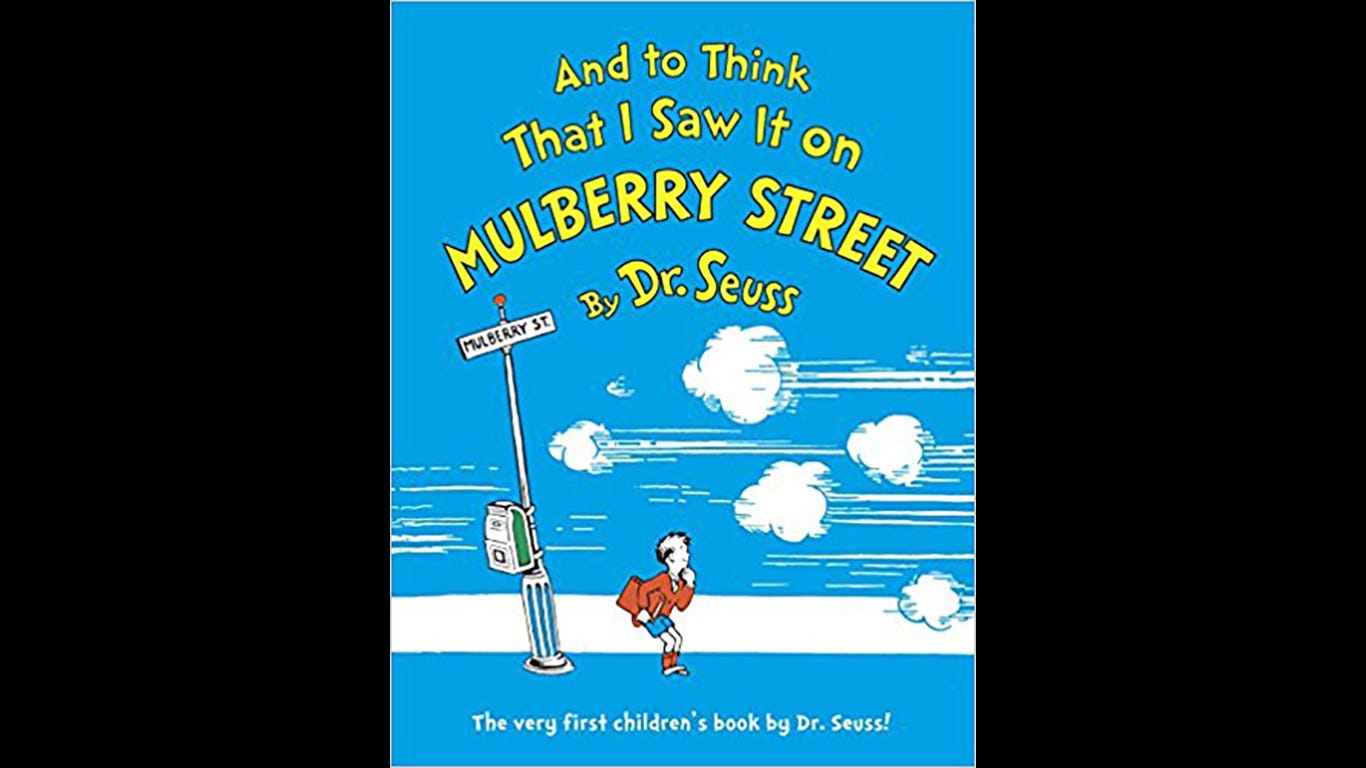
Seuss Museum in Springfield put up a mural featuring the Chinese character that they later decided to take down after three authors said they would boycott a children’s book festival at the museum because the image showed a “jarring racial stereotype of a Chinese man, who is depicted with chopsticks, a pointed hat, and slanted slit eyes. The six books which contain the offensive imagery are And to Think That I Saw It on Mulberry Street, If I Ran the Zoo, McElligot's Pool, On Beyond Zebra, Scrambled Eggs Super, and The Cat's. The study notes that while the book was revised in 1978 to refer to the man as a “Chinese man,” the image of the character retained its racist depictions. Seuss refers to by an offensive name for Asian people.

It is cited by the study for its anti-Asian imagery and stereotypical depictions of a Chinese man whom Dr. 'These books portray people in ways that are hurtful and wrong,' Dr. But when he finally arrives, he decides not to tell his father what he imagined and says he only saw the horse and wagon. Seuss Enterprises announced that six books written by the late author, whose real name is Theodor Seuss Geisel, will no longer be published because the depictions of the characters may be viewed as racist. Recalling his father’s advice to “see what you can see,” the boy imagines more elaborate scenes and characters on his walk home. The book follows a boy named Marco as he walks home from school and sees a horse pulling a wagon on Mulberry Street. Seuss’ first book under the pen name was published in 1937. The Seuss estate has decided to no longer publish it and five other Seuss books because of their racist imagery. ‘And to Think That I Saw It on Mulberry Street’ĭr. Seuss’ On Beyond Zebra that I and my daughters have so enjoyed for years is now officially a collector’s item.


 0 kommentar(er)
0 kommentar(er)
